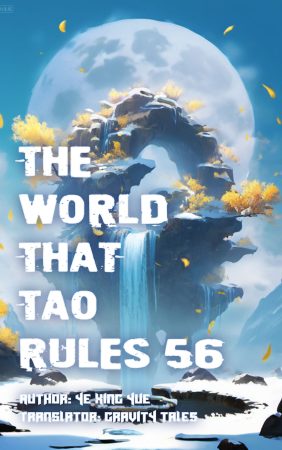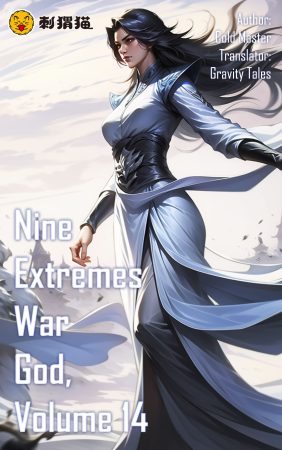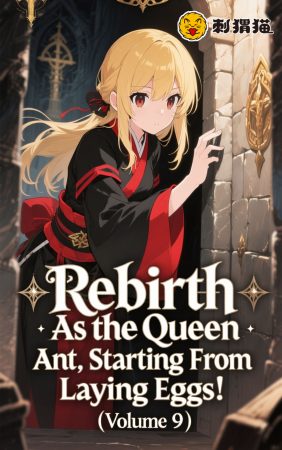Chapter 2: This Scene is Too Beautiful
Our Discord Server: https://discord.gg/PazjBDkTmW
You can buy coins here to unlock advanced chapters: https://gravitytales.com/coins-purchase-page/
“This requires a more in-depth discussion. Come, sit here.” Xiao Ming patted the edge of the bed, grinning like a shady uncle luring a little girl with candy.
“Your Highness!” Lu Luo took a sharp step back, her voice trembling with a hint of tears. “This servant is of lowly status; how dare I sit on Your Highness’s jade bed? If Chief Steward Pang finds out, I’ll surely be punished again.”
“Pang Changshi.”
Hearing the name, Xiao Ming frowned.
Pang Changshi’s full name was Pang Yukun. He was the Chief Steward of the Grand Governor’s Office in Qingzhou—essentially, a military adviser and secretary.
When Xiao Ming was exiled to his fief, Pang Yukun had been personally appointed by the Emperor to follow him.
His purpose was clear: officially, he was here to teach and guide him; in reality, he was here to spy and report back to the Emperor.
In Xiao Ming’s inherited memories, this Pang Yukun was someone he deeply despised.
Xiao Ming’s imperial father, Emperor Xiao Wenxuan, was extremely shrewd—the chief stewards he assigned were always rigid bookworms, loyal to the throne to a fault.
People like that had one thing in common: stubbornness combined with a complete lack of social awareness.
If Pang Yukun saw anything he deemed inappropriate, he would immediately report it to the Emperor, who would then write a furious letter scolding Xiao Ming.
Though this Pang Yukun had originally been targeting the former Xiao Ming, the new Xiao Ming still had to deal with him. The mere thought of the man dampened his excitement.
He glanced at Lu Luo, who was clutching the hem of her dress nervously, looking like a guilty child.
Ah.
She deliberately brought up Pang Yukun to escape.
Reflecting on his actions, Xiao Ming realized he had been a bit too impatient just now, probably scaring her. It made sense—even though he had personally requested these maidservants from Consort Zhen, the tone of her letters suggested that Lu Luo and Ziyuan had begged her not to send them.
But Consort Zhen, feeling pity for her son, still reluctantly parted with them, asking him to treat them well.
Clearly, they hadn’t come willingly.
Still, a cooked duck can’t fly away.
Xiao Ming wasn’t exactly a good person, but he wasn’t evil either. Bullying women wasn’t his style.
Since that was the case, he would take his time instead.
“You may leave,” he said. “I’m going out for a walk.”
Lu Luo let out a soft sigh of relief, unaware that Xiao Ming had already seen through her little scheme.
In truth, her fear was justified.
Before being exiled, Xiao Ming had been a notorious playboy in Chang’an, indulging in every pleasure imaginable.
Even in his fiefdom, he hadn’t exactly behaved himself.
That was why Pang Yukun kept filing complaints, likely submitting enough reports to wipe the entire Da Yu palace’s backsides for a day.
Since Lu Luo had served Consort Zhen, she would have been well aware of Xiao Ming’s bad reputation.
Thus, she was terrified of him.
As Xiao Ming prepared to leave, Lu Luo brought out his robes and said, “Your Highness, allow me to assist you in dressing.”
He almost refused.
After all, as an engineering nerd, he was used to washing his own clothes and cooking his own meals. His hands-on skills were top-notch.
But just as the words reached his lips, he changed his mind.
Since he was in this world now, he needed to blend in. Acting too strangely might prompt Pang Yukun to file another “His Highness has gone mad” report.
If that happened, Xiao Wenxuan—the old fox—might immediately seize his fief.
Still, the whole feudal system puzzled Xiao Ming.
Though history in this world diverged from the Three Kingdoms period, the dangers of granting feudal titles should still be obvious from the Han Dynasty’s example.
A smart emperor would never tolerate the existence of powerful feudal princes.
Yet, in Da Yu, granting fiefdoms to princes was routine.
Digging through his inherited memories, Xiao Ming finally found the reason.
After the Three Kingdoms era, aristocratic families became exceptionally powerful.
These wealthy, resource-rich noble clans played a crucial role in every dynasty that followed.
As dynasties rose and fell, these aristocrats acted like an invisible hand, constantly influencing history.
For over a thousand years, the Zhou, Chu, and Dai dynasties all attempted to suppress these aristocratic clans.
Yet every emperor who tried to weaken them either died prematurely or plunged the country into chaos.
By the late Dai Dynasty, the country even split into more than twenty warring states—each backed by aristocratic families.
Then came the founding of Da Yu.
The first emperor, Xiao Yuanzhi, relied on the Five Great Clans to conquer the empire.
But in doing so, he made a fatal mistake—he promised to rule the country alongside the Five Great Clans and Seven Noble Families.
Thus, when Da Yu was established, Xiao Yuanzhi granted feudal titles to six powerful aristocrats:
• The Cui Family of Yan → King of Yan
• The Li Family of Chu → King of Chu
• The Zheng Family of Liang → King of Liang
• The Qinghe Cui Family → King of Huainan
• The Zhao Family → King of Zhao
• The Nanyang Xiao Family → King of Runan
Although the Nanyang Xiao clan shared the same surname as the imperial family, they weren’t actually related.
At the time, Xiao Yuanzhi felt brilliant about this decision.
But for his descendants, it was a nightmare.
The Five Great Clans and Seven Noble Families had always controlled the land and resources, but now they were even stronger.
By the time he realized the problem, he was already old.
To counterbalance these aristocratic feudal lords, he made another drastic decision:
“The world is vast. We must establish royal fiefs—to guard the nation from above and protect the people below. My sons have come of age; they must each receive titles and govern their own territories. This is not nepotism but a strategy for long-term stability.”
Thus began the large-scale enfeoffment of imperial princes.
“Drinking poison to quench thirst.”
That was Xiao Ming’s only evaluation of Xiao Yuanzhi’s decision.
It was obvious—the goal was to let imperial princes suppress the aristocratic feudal lords and prevent them from rebelling.
Surprisingly, this strategy had actually worked—so far.
Da Yu existed in a strange state of balance, with various factions constantly undermining each other.
But this infighting had also stunted technological progress, leaving the kingdom stagnant at a Tang-Song level.
The threat of the aristocrats haunted every royal family member, and unfortunately, Xiao Ming’s fief was no exception.
The local noble clans controlled all key resources, making it nearly impossible for him to govern effectively.
“Surviving in this world won’t be easy.” Xiao Ming sighed.
Dressed in a purple embroidered robe with a round collar, he stood before a bronze mirror.
Tall and slender, with sharply handsome features—this was his new self.
As he stepped out of the hall, the morning sunlight bathed him in warmth.
The air was crisp and fresh, clearing his mind.
The sky was a breathtaking sapphire blue, so pure it was intoxicating.
A pebble path led down the steps to a stone bridge, flanked by gourd-shaped ponds. Willows swayed, bamboo glistened, creating a picturesque garden scene.
Across the pond stood black-tiled, red-walled buildings, their eaves interlocking in elegant layers, supported by rows of lacquered pillars.
Seeing it firsthand was far more immersive than just recalling memories.
At this moment, Xiao Ming truly felt it—he had transmigrated.
“I’m here, Da Yu.”
This fief was now his home. And his first obstacle? The local aristocrats.












